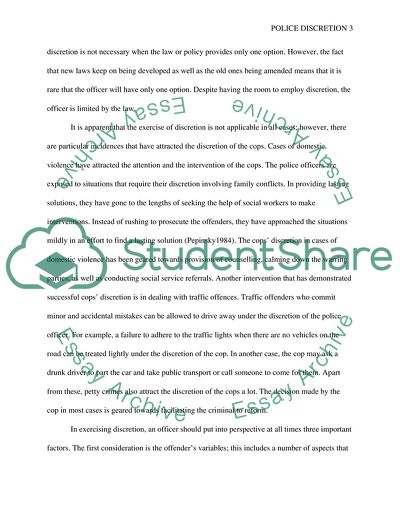Cite this document
(“Explain what police discretion means and critically consider its Essay”, n.d.)
Retrieved from https://studentshare.org/sociology/1626133-explain-what-police-discretion-means-and-critically-consider-its-impact-on-the-way-the-police-do-their-job
Retrieved from https://studentshare.org/sociology/1626133-explain-what-police-discretion-means-and-critically-consider-its-impact-on-the-way-the-police-do-their-job
(Explain What Police Discretion Means and Critically Consider Its Essay)
https://studentshare.org/sociology/1626133-explain-what-police-discretion-means-and-critically-consider-its-impact-on-the-way-the-police-do-their-job.
https://studentshare.org/sociology/1626133-explain-what-police-discretion-means-and-critically-consider-its-impact-on-the-way-the-police-do-their-job.
“Explain What Police Discretion Means and Critically Consider Its Essay”, n.d. https://studentshare.org/sociology/1626133-explain-what-police-discretion-means-and-critically-consider-its-impact-on-the-way-the-police-do-their-job.


